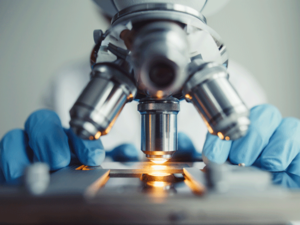“I just wanted to clone DNA using my automated lab robot and feasibly make full genomes at home,” he said. Gandall was far from alone. In the past few years, so-called biohackers across the country have taken gene editing into their own hands. As the equipment becomes cheaper and the expertise in gene-editing techniques, mostly Crispr-Cas9, more widely shared, citizen scientists are attempting to reengineer DNA in surprising ways.
Until now, the work has amounted to little more than D.I.Y. misfires. A year ago, a biohacker injected himself at a conference with modified DNA that he hoped would make him more muscular. (It did not.) Earlier this year in Austin, a biotech executive injected himself with what he hoped would be a herpes treatment. (Verdict: No.)
His company already had live-streamed a man injecting himself with a home-brewed treatment for HIV (His viral load increased.) Gandall, now 18 and a research fellow at Stanford, said he only wants to ensure open access to gene-editing technology, believing future biotech discoveries may come from the least expected minds. But he is quick to acknowledge that the do-it-yourself genetics revolution one day may go catastrophically wrong. “Even I would tell you, the level of DNA synthesis regulation, it simply isn’t good enough,” Gandall said. “These regulations aren’t going to work when everything is decentralised — when everybody has a DNA synthesizer on their smartphone.”
His company already had live-streamed a man injecting himself with a home-brewed treatment for HIV (His viral load increased.) Gandall, now 18 and a research fellow at Stanford, said he only wants to ensure open access to gene-editing technology, believing future biotech discoveries may come from the least expected minds. But he is quick to acknowledge that the do-it-yourself genetics revolution one day may go catastrophically wrong. “Even I would tell you, the level of DNA synthesis regulation, it simply isn’t good enough,” Gandall said. “These regulations aren’t going to work when everything is decentralised — when everybody has a DNA synthesizer on their smartphone.”




No comments:
Post a Comment